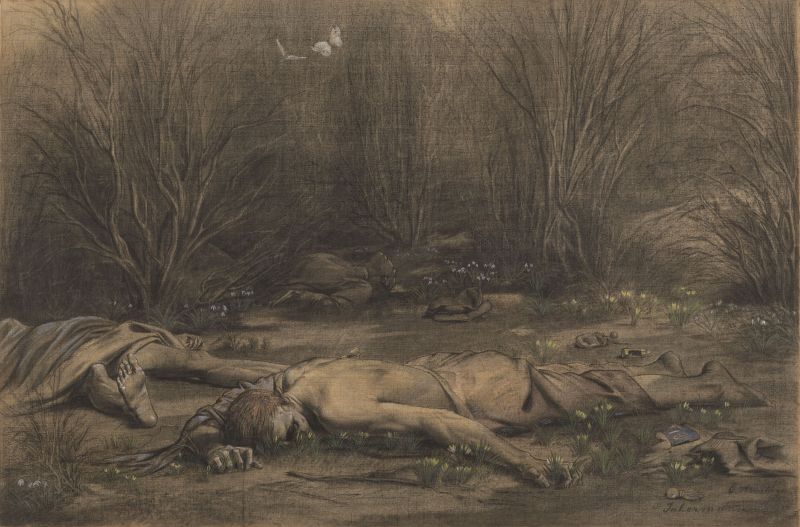We are thrilled to publish our first new catalogue in almost two years. During the hiatus of Covid we have been extremely busy – moving gallery, mounting a series of online exhibitions and working on a number of hugely ambitious projects – this catalogue offers an exciting opportunity to publish some of our highlights for 2023.

John Flaxman
1755–1826
A frieze designed for Edward Knight
Pen, ink and wash on two pieces of conjoined paper
9 ¼ x 30 ¼ inches; 235x 767 mm
Drawn in 1791
Filled with works that have beguiled, moved or intrigued us. Some are exciting new discoveries, such as the magnificent large drawing by John Flaxman of a sarcophagus, a drawing commissioned by Edward Knight and unrecorded since 1791. Or the magnificent rediscovered painting by Joseph Wright of Derby A Hermit, painted in Liverpool whilst Wright was in the midst of making his great sequence of candlelight compositions, it offers a fresh perspective on one of the most enigmatic of British eighteenth-century painters. Others are established masterpieces, such as the exquisite oil by JMW Turner of Bonneville, made by Turner after his first trip to the Continent in 1802 and his first sight of the alps, it was commissioned by Turner’s greatest patron, Walter Fawkes and hung originally at Farnley Hall.

Edward Armitage
1817–1896
The Botton of the Ravine at Inkerman
Black and coloured chalks on canvas
30 x 48 inches; 760 x 1220 mm
Signed and inscribed 'E Armitage/Inkermann'
Whilst we work in a comparatively narrow field, the breadth of works in this catalogue demonstrates the richness of our specialisation. As in other years, we have foregrounded the work of neglected female artists. The penetrating bust by Anne Seymour Damer raises – and we hope answers - the vexed issue of whether she herself carved works in marble, surely it is a resounding ‘yes’, placing her as one of the only professional female sculptors working in marble in eighteenth-century Europe. This contrasts with the monumental cartoon by Edward Armitage of corpses in the ravine at Inkerman. This unbelievably poignant work was praised in the contemporary press, with one writer noting: ‘It speaks to us in a more dreadful whisper of the horrors of war than all the peace speeches ever made.’
With the spectre of war once more in the Crimea this powerful work assumes chilling contemporary relevance.